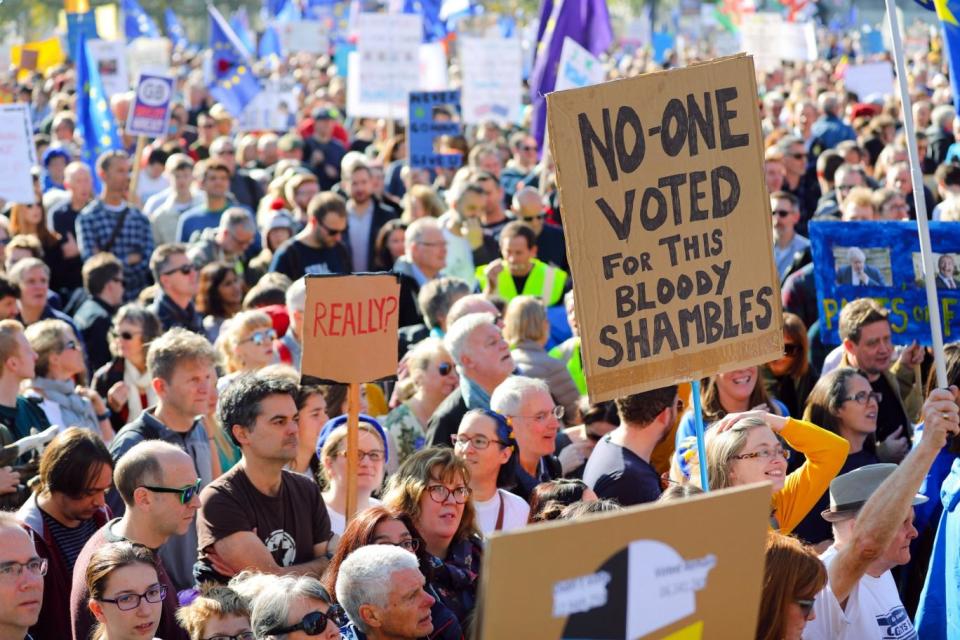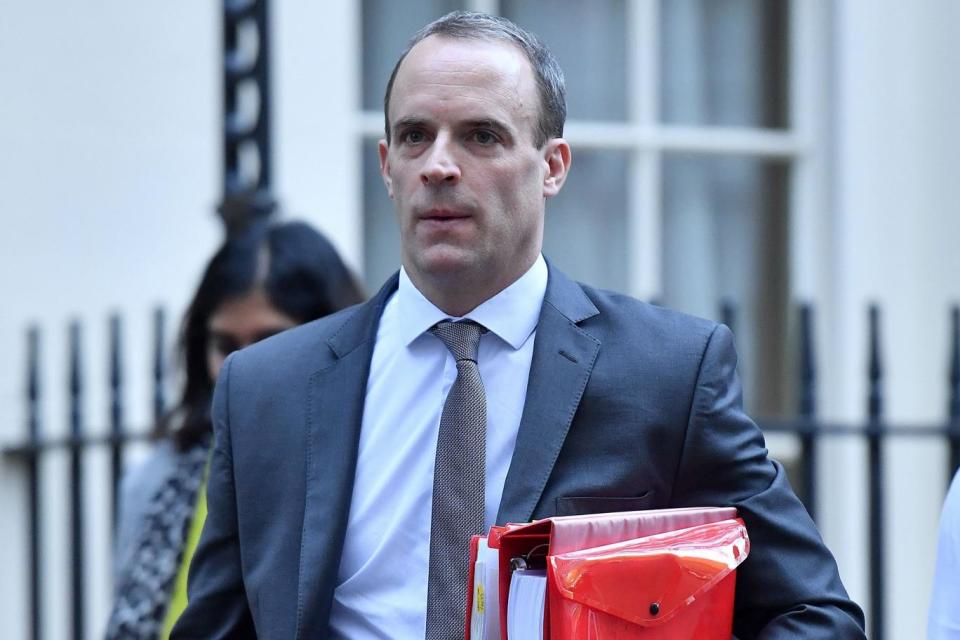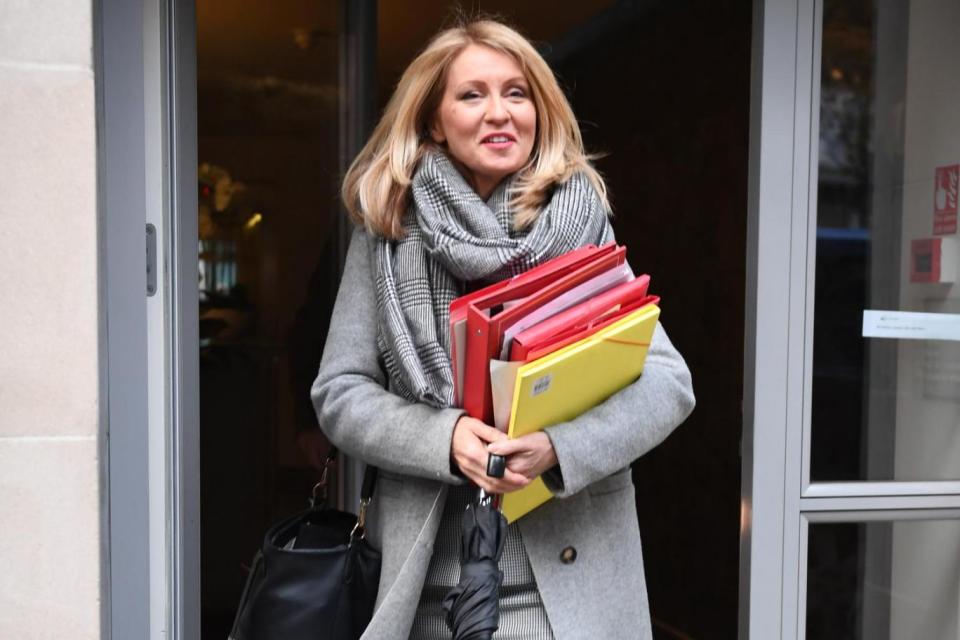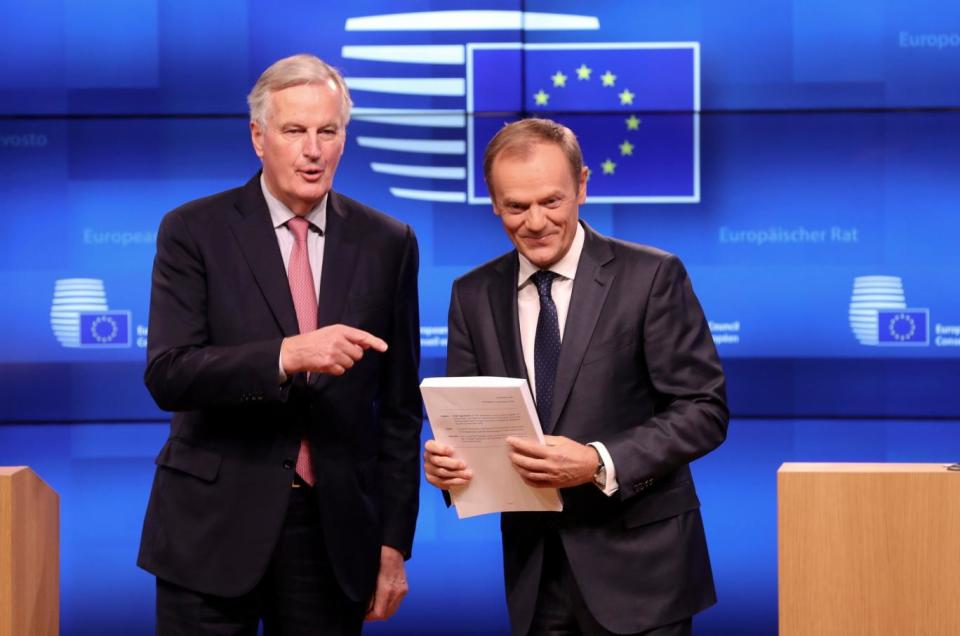Put your deal-or-no-deal knowledge to the test with this Brexit quiz

1. When will Britain leave the European Union?
a) On March 29, 2019, definitely. (If you are the average Londoner, you might want to add ‘…more’s the pity’. Or, if you are a member of the European Research Group, “…hurrah, hurrah, exsultate!”)
b) Probably March 29, 2019, though the deadline to leave could be extended if all 28 member nations were to agree.
c) Given the reaction to Theresa May’s draft agreement with the EU from Jacob Rees-Mogg and others, it seems likely the UK will be stuck in an endless purgatory of negotiations and bitter party infighting until the end of time, or until Theresa May stands down (whichever is the sooner).
2. How will the Irish Border question be solved?
a) Oh, it will work itself out. The people of Northern Ireland and the Republic are reasonable folk. The problem has been overstated, frankly.
b) It’s still to be determined, and depends on a future trade deal with the EU: the UK wants a “common rulebook” for food and goods passing between the EU and the UK across the land border between northern and southern Ireland. Which is different to the “common regulatory area” proposed by the EU, which would involve a border in the Irish Sea. If no trade deal is reached, a “backstop” will come, which will keep the UK and EU in a “single Customs Territory” but leave Northern Ireland tied more closely to EU regulations than the rest of the UK. It will be legally harder for the UK to exit the backstop than to leave the EU. Got it?
c) By patrols of unicorns.

3. What exactly is the “transition period”?
a) Aren’t we in the transition period? And to paraphrase Yvette Cooper, haven’t we “ONLY GOT FIVE MONTHS!”
b) Assuming the withdrawal agreement goes through, it’s a period running until December 2020 to allow further details to be hammered out; free movement of people into the UK will continue, but we will be able to negotiate external trade deals.
c) The time it takes to sign up to an Irish passport, if you can. Or if you are Nigel Farage, to get German ones for your kids.
4. What is your view on a second referendum?
a) That it is impossible/that it is inevitable.
b) That it is undesirable, given what happened last time.
c) *Impersonates ‘Brenda from Bristol’ on BBC news when told of the 2017 snap election*: “You’re joking! Not another one! Oh no!”

5. What is the main impact of Brexit?
a) It enables us to be a sovereign nation again and to take back control of our borders/it is an act of national self-harm equivalent to a man hanging heavy weights off three limbs while repeatedly stabbing himself in the face with the fourth.
b) There is no “main” impact: it will affect trade, borders, immigration, the movement of peoples, satellites, research, pet passports, everything.
c) It affects the brains of certain senior ministers who had direct responsibility for delivering Brexit for two years, then resigned and started criticising the Government they were
a part of for not delivering it.
6. OK, but what issues are you most concerned about after Britain leaves the EU?
a) The colour of my passport/the sexy thrill of describing myself as “European”.
b) The availability of medication and food; reduced collaboration with former EU partners in areas such as science, security and the arts; reduced opportunity for the young and a drop in the standard of living; and, to be honest, how much more time we’re all going to spend in airport security when flying to Greece.
c) Chlorine-washed chicken.

7. What is Labour’s position on Brexit?
a) They were mostly against it, now they are mostly for it.
b) They are hopelessly stuck between a majority of MPs who voted against it and a large number of members and traditional supporters who voted for it, with a pro-EU grassroots movement — Momentum — supporting a furiously anti-EU leader. So they are prevaricating and hedging, trying to capitalise on the Government’s disarray and angling for power, while trying not to get the blame if left holding the bad Brexit baby.
c) They believe in a Schrodinger’s Brexit, which simultaneously can and cannot be stopped.
8. Where are we with regard to resignations from Theresa May’s government?
a) In addition to the past resignations of Boris Johnson, David Davis and Jo Johnson, four people resigned before 10.30am this morning: Dominic Raab, thingy McVey and two others no one had ever heard of.
b) That’s Esther McVey, Shailesh Vara, and Suella Braverman. And you forgot the earlier resignations of Guto Bebb, Steve Baker, Ben Bradley and Maria Caulfield. More resignations were expected this lunchtime.
c) The entire Cabinet will probably resign by Monday. Apart from Theresa May, of course

9. How important is fishing to the post-Brexit world?
a) Very important… maritime nation… cod war… trawlermen braving the high seas…
b) Very important if you are one of the 13 Scottish Tory MPs who have refused to sign the draft deal unless it promises more support for the industry. Not so important in economic terms: fishing is worth about £1.4 billion to the economy compared to the £30 billion the fashion industry contributes, for instance.
c) Important enough for Nigel Farage to dump rotten haddock in the Thames: not important enough for him to turn up to 41 of the 42 meetings of the EU fisheries committee, of which he was a member, over a three-year period.
10. How many times does the draft agreement mention Scotland?
a) I’d guess between 10 and 20 times…
b) Scotland is not mentioned once. Nor is Wales. Northern Ireland is mentioned 141 times, and Gibraltar 30 times.
c) God knows — the document is 585 pages long, you know.
11. How likely is it that Theresa May will get her outline deal with the EU through Parliament?
a) Very likely. MPs of all parties are tired of fighting and just want to agree on something.
b) Highly unlikely, as ardent Brexiteers on both sides of the House will dismiss it as a sellout, some of them using words like “vassalage”, if not “Vaseline”. Jacob Rees-Mogg has urged all Tory MPs to oppose it and a vote of no confidence in May could be proposed any minute.
c) It’s 51.9 per cent likely to pass. No, wait, 48.1 per cent... No, wait, there are some Russian votes just coming in…
12. Who will emerge as the winner(s) once Brexit finally happens?
a) Britain, when the EU realises how much it needs us/the EU, once we realise how much we need it.
b) No one: the EU will be weaker without us; we will be weaker without the EU; the world will be less stable; so will Ireland; those who tied their political careers to it will reap the whirlwind; the advocates of a low-tax, low-regulation economy may glean financial rewards but their consciences will torment them (well, we can always hope).
c) Bailiffs, repo men, payday loan companies.

13. Apart from the Irish backstop, and the £39bn “divorce bill”, and the guarantee of EU citizens’ rights, what is the most contentious part of the draft agreement for Brexiteers?
a) Um, is it written in French?
b) The fact that the European Court of Justice will still have influence in the UK over questions of EU law.
c) The fact that the UK has guaranteed to respect the regional status of things like Parma ham, Feta cheese, Tokaj wine and Jerez vinegar. What about Britain’s struggling Tokaj makers and Parma farmers?
14. What is the difference between the single market and the customs union, hard and soft Brexit, a Norway deal and Canada double plus…?
a) Don’t know.
b) Don’t ask.
c) Don’t care.
15. Are we all losing the will to live?
a) Yes.
b) Yes.
c) Yes.
ANSWERS
Mostly A – Whether you voted leave or remain, you have only the vaguest understanding of what’s actually going on with Brexit, but don’t worry: in this case ignorance really is bliss.
Mostly B – You appear to have a deep understanding not just of the structures and strictures surrounding Brexit, but the ramifications too. Which is deeply worrying.
Mostly C – You have ceased to try to understand what’s going on and lapsed into a state of weary, nihilistic sarcasm. Welcome to the club.

 Yahoo News
Yahoo News 
